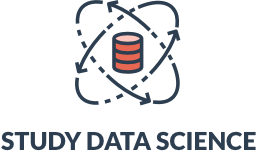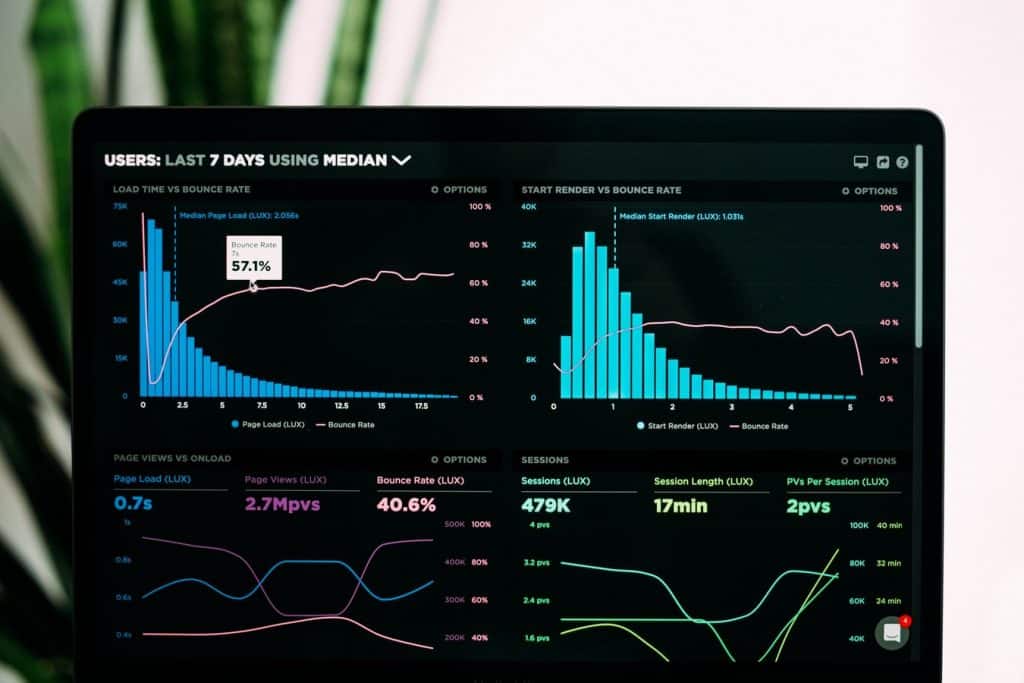How to Become a Business Analyst
Business analytics is a large data science field with plenty of benefits, especially for people looking to start a career in tech. This emerging field is closely related to data analytics, and utilizes many of the same tools, methods, and terminology. If you’re interested in a career in data science but don’t know where to start, read on. Here, we’ll present the essential facts about the field and how to become a business analyst.
Here are a few key pieces of information about a career in business analytics using data from the Bureau of Labor Statistics and Glassdoor:
Listings
Average Salary
Hiring Companies
What Is Business Analytics?
Simply put, business analysts are data analytics professionals who focus specifically on business and finance. Business analysts specialize in helping companies understand the meaning of data they collect through everything from data mining to surveys. Business analyst jobs are similar to other data science positions, with an emphasis on data visualization and business processes.
What Do Business Analysts Do?
Business analysts collect, organize, and interpret data for a wide range of companies. These data analysis professionals help businesses understand trends revealed in data. This information plays a key role in developing products and services efficiently and effectively. In a world reliant on data, the importance of qualified business analysts has never been greater.
Business Analytics Job Description
The day-to-day routines of business analysts vary between different companies. However, there are a few things that the majority of business analysts have in common. Here are some of the most common job responsibilities of business analysts:
Business analysts work closely with other professionals on things like strategy, planning, and market research. The value of a business analytics job comes down to one universal fact—data is everywhere, and hidden within trillions of data points are patterns of useful information that can increase profitability and customer satisfaction.
What Are the Required Skills for Business Analytics Careers?
Business analysts share many skill requirements with data scientists and data analysts. However, these professionals differ in a few notable areas. The primary difference between the fields is that business analysts have additional training in business, marketing, economics, finance, or a similar field. While they usually don’t spend too much time performing other tasks, it’s still essential for business analysts to fundamentally understand the field they work in. Differences aside, here are the most important business analyst skills:
How Much Do Business Analysts Make?
Business analysts are among the highest-paid professionals in the data analytics field. In the tech industry, it’s common to see salaries rise as people specialize. The same holds true for data analytics fields, as the added skills of business analysts earns them a salary boost. Here are the average business analyst salaries in several major metropolitan areas in the United States:
| City | Average Salary | Entry-Level Salary | Mid-Career Salary | Late-Career Salary |
| Atlanta, GA | $69,250 | $52k | $70k | $91k |
| Boston, MA | $72,544 | $55k | $73k | $95k |
| Chicago, IL | $70,867 | $52k | $71k | $93k |
| Cleveland, OH | $62,189 | $47k | $62k | $82k |
| Dallas, TX | $69,084 | $51k | $70k | $91k |
| Los Angeles, CA | $72,555 | $54k | $73k | $96k |
| Miami, FL | $64,653 | $49k | $51k | $80k |
| Milwaukee, WI | $66,315 | $50k | $66k | $88k |
| Minneapolis, MN | $71,051 | $54k | $71k | $93k |
| New York, NY | $75,637 | $55k | $76k | $102k |
| Philadelphia, PA | $66,553 | $50k | $67k | $87k |
| Phoenix, AZ | $63,281 | $48k | $63k | $84k |
| Portland, OR | $67,822 | $51k | $68k | $90k |
| San Francisco, CA | $83,339 | $63k | $83k | $109k |
| Seattle, WA | $75,579 | $58k | $76k | $99k |
These professionals earn an average salary of $62,435 per year. This number doesn’t include thousands of dollars in bonuses, overtime, and other cash compensation. In some areas, business analysts have the ability to earn more than $100,000 per year.
- Mean Annual Salary: $62,435
- Projected Job Growth Outlook (2018-28): 26%
- Number of People Employed: 109,000
Business administration requires a healthy level of analysis. Among all job titles, none serve this need better than business analysts. These professionals solve business problems, and serve the role of ‘trend finders’ within a company.
- Mean Annual Salary: $124,567
- Projected Job Growth Outlook (2018-28): 16%
- Number of People Employed: 140,000
Data scientists use programming languages, statistical skills, and algorithms to manage and interpret large data sets.
- Mean Annual Salary: $114,121
- Projected Job Growth Outlook (2018-28): 16%
- Number of People Employed: 31,000
Machine learning engineers use algorithms, engineering principles, and programming languages to build artificial intelligence systems.
- Mean Annual Salary: $62,435
- Projected Job Growth Outlook (2018-28): 26%
- Number of People Employed: 109,000
Data analysts use coding languages, frameworks, and data visualization tools to transform large volumes of non-descript data into useful and actionable information.
| Position | Salary |
| Entry Level (0-4 Years) | $50,000 |
| Mid-Career (5-10 Years) | $70,000 |
| Experienced (10-20 Years) | $85,000 |
| Late-Career (20+ Years) | $100,000 |
Business analysts are often included on project management teams. The role of a business analyst also includes helping team members identify trends that have the potential to impact the company in the biggest ways. Job responsibilities vary between companies, but most related roles include a high level of informing and advising.
The Types of Business Analysts
Data analytics jobs are abundant. Job responsibilities vary between companies. Also, data analyst jobs cover a wide range of activities. In short, there are two main types of analysts in the field: data analysts and business analysts. Here’s the difference between these two career paths:
How Can You Become a Business Analyst?
Before becoming a business analyst, it’s important to grasp the fundamentals of data science and data analytics. Most people learn foundational skills in colleges and coding bootcamps. In some cases, business analysts teach themselves the necessary skills to land a job in the field. It takes more than a basic understanding of algorithms and analytics to be an effective business analyst; you should also learn the fundamentals of business operations and statistics to be competitive in the field. Here are the most common education pathways for business analysts:
College or University
Most business analysts trace their roots back to colleges and universities. Aspiring business analysts often major in software engineering, business administration, statistics, or a combination of these. Most business analysts have a bachelor of science degree.
Coding Bootcamp
Over the last decade, coding bootcamps have become a viable alternative to college for data science and analytics jobs. These short, intense coding education courses teach prospective tech workers the skills they need to compete in the workforce. Some bootcamps offer job guarantees, deferred tuition, and job placement assistance.
Coding Bootcamps
Bootcamps strike a balance. While they will not provide the same comprehensive education that a four year degree will, they will provide you with on the ground, practical training to get you into software engineering as quickly as possible. Coding bootcamps cost an average of $13,600 for a full-time education. These programs run between 3 months and 1 year, but schedules vary widely. Full-time programs are available, as are part-time and online programs in all shapes and sizes. Additionally, students can attend bootcamps for other tech careers including web development, data science, cybersecurity, and more. Software engineering is an amazing career. Getting to design entire complex systems that function in unison with other systems like cogs in a giant machine is deeply appealing to many. If it’s appealing to you then don’t wait. Start learning now, and enter a field where cutting edge is the norm.
- Duration: 1 to 5 years
- Cost: $0 (or minimal)
- Average Base Salary: Unknown
- Duration: 3 to 12 months
- Cost: Avg. $13,600
- Average Base Salary: $70,700
- Duration: 4 to 6 years
- Cost: Avg. $34,740 (4 years)
- Average Base Salary: $65,900
- Duration: 1.5 to 2 years (in addition to Bachelor’s Degree)
- Cost: Avg. $30,000 to $100,000 (in addition to Bachelor’s Degree)
- Average Base Salary: $114,000
- Duration: 4 to 8 years (in addition to Bachelor’s Degree)
- Cost: Avg. $50,000+ (in addition to Bachelor’s Degree)
- Average Base Salary: $124,000
FAQ
Will coding bootcamp help me get a job?
Absolutely! Coding bootcamp is a proven way to train for a job in tech. Many coding bootcamps offer job guarantees, and some refund tuition if graduates can’t find a job in the field they trained for. In fact, coding bootcamp teaches skills that many college computer science graduates lack.
How much do coding bootcamps cost?
Coding bootcamp tuition varies. Coding bootcamps in New York City cost around $10,000 to $20,000. However, many scholarships and tuition deferment programs are available, so what you see doesn’t have to be what you pay.
What are income share agreements?
Income share agreements, or ISAs, are a new way to pay for education. These programs defer tuition until after students graduate and find a job in the industry. Once students are employed and making above a certain income threshold (usually $40-60,000 per year) they begin paying a fixed percent of their income, often for around 2 years. If students can’t find a job, many bootcamps waive the cost of tuition.
Do I have to learn coding to work in the tech industry?
You don’t have to learn coding to work in the tech industry. In fact, there are several non-coding bootcamps in New York City. These programs train you for a position in tech sales, marketing, or product management–all of which are well-paid positions with plenty of advancement opportunity.








